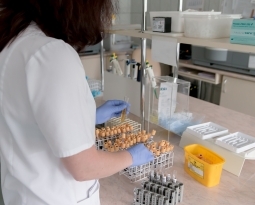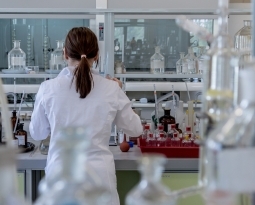New Jersey company revolutionizing farming
In New Jersey, an innovative farming concept is completely converting traditional farming to become more sustainable and reliable.
According to the U.S Geological Survey, 70 percent of all consumed freshwater is used for agriculture and only half of this can be recycled. In addition, agriculture farming also consumes huge swaths of land and is greatly dependent on stable environmental conditions to grow high quality crops and produce.
AeroFarms is an innovative company, which believes it has a much better farming solution that will be more environmentally friendly and also provide a more stable farming environment. The company’s method requires no soil, sunlight, very little water and takes place indoors. In fact, any indoor location could be a possible fertile growing ground despite what the locations outdoor climate is.
AeroFarms stems from the initial concept of Professor Ed Harwood, who invented a new system for growing plants in a cloth material he created. There was no need for dirt use beneath the cloth and the plant roots were sprayed with nutrient-rich mist.
Harwood received a patent for his invention and founded Aero Farm Systems, which refers to ‘aeroponics’, meaning the method of growing plants without placing them in soil or water. However this company was purely a side project for Harwood and did not generate much revenue.
In 2011, David Rosenberg and Marc Oshima began exploring potential new methods to resolve the inefficiencies of traditional farming. They sensed an opportunity when coming across Aero Farm Systems and liked what Harwood had developed so much that they asked to come on-board as co-founders.
Rosenberg and Oshima proposed a change to the company’s business model and saw a bigger opportunity in optimizing the growing process and selling the crops themselves. From here the company became ‘AeroFarms’ and began to open facilities in New Jersey which consisted of a steel mill, a club and a paint ball center and began converting them into indoor farms.
Today, the farms grow and sell a large amount of produce to grocers such as, Whole Foods, ShopRite and Fresh Direct, as well as to dining halls at businesses like Goldman Sachs and the New York Times.
As the company is easily able to set up centers close to their customers and are not affected by external environmental conditions, they are able to ensure local and fresh growing all year round. As transport is therefore reduced, costs for the fresh produce are able to be kept to a minimum.
Through research and development carried out, AeroFarms can collect hundreds of thousands of data points at each facility, allowing altering of LED lighting to control taste, texture, color and nutrition. Additionally, the data also helps the company adjust variables like temperature and humidity to optimize its crop yields.
AeroFarms has proven to be 130 times more productive per square foot annually than a field farm. An AeroFarm also uses 95 percent less water than a field farm, 40 percent less fertilizer than traditional farming and no pesticides.
Leafy greens make up most of the company’s output and would traditionally take 30-45 days to grow, however with the AeroFarm method it can take as little as 12 days.
New Jersey’s new AeroFarm headquarters in Newark will be the world’s most productive indoor farm by output once it reaches full capacity. The farm consists of a dedicated R&D center, plant scientists, microbiologists, mechanical engineers and electrical engineers.
AeroFarms do still have some hurdles to overcome before it can claim to be a practical solution for replacing all the world’s farms. One significant problem is the large amount of electricity required, which is costly and also offsets much of the good done by preserving water due to the large carbon footprint it creates. Never the less, AeroFarms is working hard to address such problems and is optimistic about research findings into more energy efficient strategies.
To date AeroFarms employs 120 people across nine farms and plans to reach 25 farms within the next five years. The company has raised more the $100 million and continues to develop and spread its concept worldwide. Oshima says, “From day one, this has been about having an impact around the world,” and this is precisely what the company will continue striving to achieve.
New Jersey has several R&D tax credits available for certain qualifying R&D activities. If your company is engaging in R&D, it may qualify. Contact a Swanson Reed R&D Tax Adviser today to receive an assessment and discuss your R&D incentive eligibility.

















